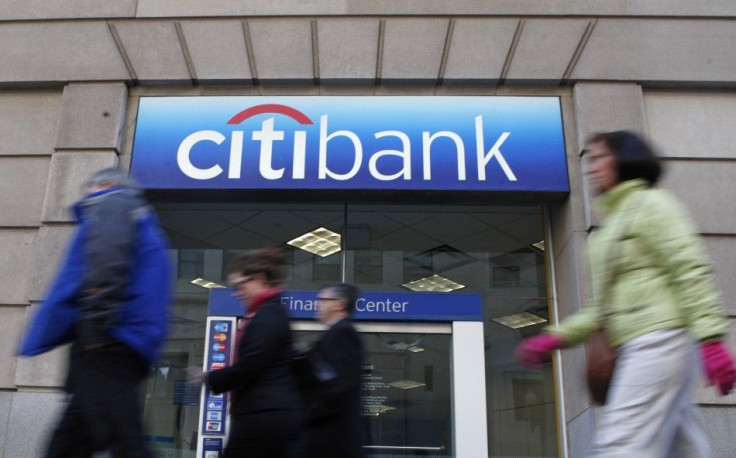Citigroup's 1Q Earnings Expected To Be Flat

Citigroup Inc. (NYSE: C), which has struggled since weaning itself in 2010 from a government bailout, is expected to report first-quarter earnings that roughly match year-earlier results as cost cuts and a stronger balance sheet help the company recover from a woeful fourth quarter.
The financial giant reports Monday before markets open, and analysts surveyed by Thomson Reuters expect, on average, revenue of $19.85 billion for the quarter. That would be a slight increase from the $19.73 billion Citi posted in the first three months of 2011. Net income is expected to be 99 cents a share, a penny shy of the $1 in profit per share recorded a year ago.
New York-based Citi had revenue in last year's fourth quarter of $17.17 billion and earnings per share of 38 cents, which was below estimates.
Analysts continue to regard Citi as rife with problems, a frequent underperformer among big U.S. banks. It was the largest institution to fail the latest Federal Reserve capital "stress tests." Yet many of the same analysts say a few bright spots in Citi's portfolio suggest a comeback is near: recent cash infusions, along with booming businesses in credit card underwriting and equities trading.
In the wake of its lousy fourth quarter, the prevailing view of Citi is that things can't get worse.
"Management is focused on controlling expenses and optimizing the balance sheet and capital position. Management struck a serious tone on costs and is prepared to further curtail expenses if revenues do not meaningfully return," Credit Suisse analyst Moshe Orenbuch wrote in a recent note that summarized comments from Citi's financial chief at an investor conference.
Besides controlling expenses, analysts see improvements in Citi's balance sheet coming from recent divestitures of assets in Turkey, China and Russia. It's expected that when first-quarter results are issued Monday, management will play up these capital-accumulation strategies, especially given its Fed stress-test failure in mid-March.
Those improvements will help keep costs down and prop up the balance sheet, analysts agree. There is disagreement, however, as to whether revenues will increase.
"It will be intriguing to see if market-share shifts occur in trading given Citi's recent reduction of employees, proprietary trading, and risk on the trading desk," Frederick Cannon of banking-focused brokerage Keefe, Bruyette and Woods wrote in a note to clients.
Citi shares closed Friday down 3.5 percent at $33.41, at the midpoint of their trading range over the past 52 weeks.
© Copyright IBTimes 2025. All rights reserved.





















